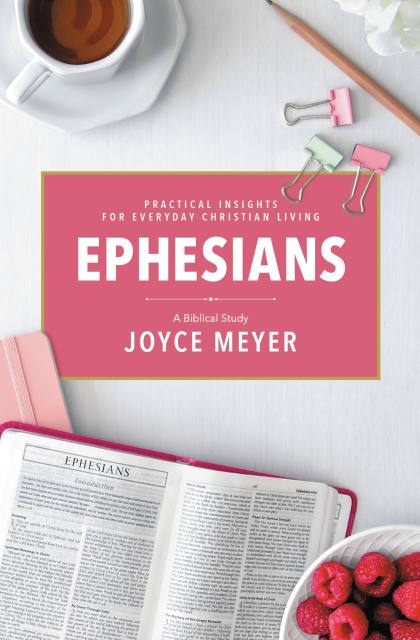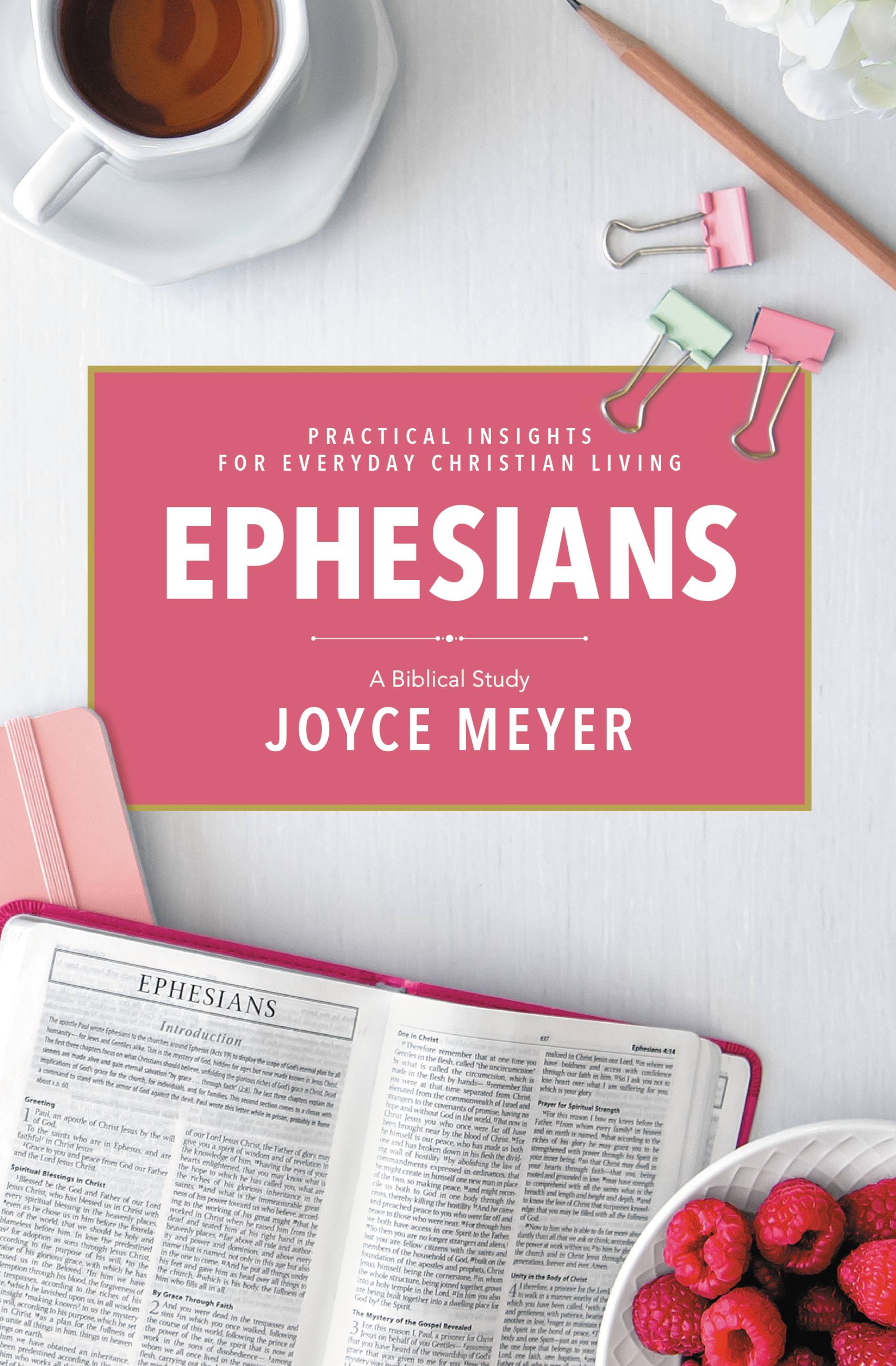By clicking “Accept,” you agree to the use of cookies and similar technologies on your device as set forth in our Cookie Policy and our Privacy Policy. Please note that certain cookies are essential for this website to function properly and do not require user consent to be deployed.
Ephesians
Biblical Commentary
Contributors
By Joyce Meyer
Formats and Prices
- On Sale
- Mar 5, 2019
- Page Count
- 176 pages
- Publisher
- FaithWords
- ISBN-13
- 9781546026006
Price
$12.99Price
$12.99 CADFormat
This item is a preorder. Your payment method will be charged immediately, and the product is expected to ship on or around March 5, 2019. This date is subject to change due to shipping delays beyond our control.
Buy from Other Retailers:
Internationally renowned Bible teacher Joyce Meyer provides a close study and commentary on Ephesians, emphasizing the importance of living in Christ and putting your relationship with God first.
Paul’s letter to the Ephesians is a well-loved book of the Bible that teaches some of the most important lessons of faith: who you are in Christ, how you are to live as His follower, and how to gain victory in the spiritual battles you face. In this study tool, Joyce Meyer takes a deep dive into those beloved verses, identifying key truths and incorporating room for personal reflection.
Joyce’s new series provides key Biblical commentary that will help you develop a stronger relationship with God. If you take the time to study His word, you’ll see how much He loves you and who you are in His image. Change will come, and your life will bear the good fruit that God intends!
Paul’s letter to the Ephesians is a well-loved book of the Bible that teaches some of the most important lessons of faith: who you are in Christ, how you are to live as His follower, and how to gain victory in the spiritual battles you face. In this study tool, Joyce Meyer takes a deep dive into those beloved verses, identifying key truths and incorporating room for personal reflection.
Joyce’s new series provides key Biblical commentary that will help you develop a stronger relationship with God. If you take the time to study His word, you’ll see how much He loves you and who you are in His image. Change will come, and your life will bear the good fruit that God intends!
Series:
-
Joyce's new biblical commentary will afford a reservoir of wisdom . . . . I am sure generations to come will greatly benefit by this resource.Jack W. Hayford Chancellor Emeritus, The King's University, Southlake, Texas
-
Joyce's new series demonstrates that she writes as interestingly and beautifully as when she speaks. Her ability to apply truth to where people are in their daily lives is often sealed with a touch of brilliance. Caution: be prepared for your life to change after you read these commentaries.Dr. R. T. Kendall, senior minister of Westminster Chapel for twenty-five years, international speaker, and bestselling autho
Newsletter Signup
By clicking ‘Sign Up,’ I acknowledge that I have read and agree to Hachette Book Group’s Privacy Policy and Terms of Use







